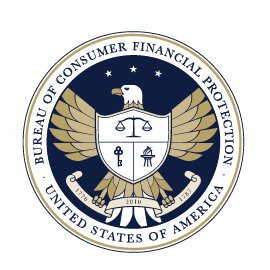The U.S. Court of Appeals for the Sixth Circuit recently held that a debtor’s claim seeking to use a bankruptcy trustee’s § 544(a) strong-arm power to avoid a mortgage on the ground that it was never perfected did not require appellate review of the state court foreclosure judgment, and therefore was not barred by the Rooker-Feldman doctrine. A copy of the opinion in In re Isaacs is available at: Link to Opinion. In 2003, the debtor and her husband took out a home-equity loan secured by a mortgage on their home in Kentucky. The original mortgagee did not immediately record…
On July 27, Gov. Bruce Rauner approved an amendment to Illinois’ Student Loan Servicing Rights Act. The legislation, HB 4397, passed unanimously in both chambers and becomes effective Dec. 31, 2018. The legislation amends the definition of “student loan servicer” in the Student Loan Servicing Rights Act by excluding “a law firm or licensed attorney that is collecting post-default debt.” The Act already excluded licensed collection agencies collecting on post-default debt. The Student Loan Servicing Rights Act, which becomes effective on the same date, requires licensing of student loan servicers and includes a “Student Loan Bill of Rights” that imposes…
The U.S. Court of Appeals for the Eighth Circuit recently held that seeking to collect compound interest in violation of state usury law results in a misrepresentation of the amount of a debt in material violation of the federal Fair Debt Collection Practices Act (FDCPA). In so ruling, the Eighth Circuit reversed and remanded the trial court’s judgment against the consumer, in part, as to his claims for alleged violation of the FDCPA, 15 U.S.C. 1692, et seq., based on a letter that sought to collect compound interest on the subject debt, in violation of Minnesota’s usury statute. A copy…
The U.S. District Court for the Northern District of Ohio issued its highly anticipated ruling on July 25 in a CFPB enforcement action against an Ohio debt collection law firm, concluding that the firm’s attorneys were “meaningfully involved” in the collections process and entering judgment in favor of the law firm. The decision followed an advisory jury’s verdict, which found the law firm’s pre-suit collection letters contained “false, deceptive, or misleading representations or means in connection with the collection of a debt” while rejecting a claim that the firm’s attorneys were not meaningfully involved in the debt collection process in…
Answering a certified question from the U.S. Court of Appeals for the Eighth Circuit, the Minnesota Supreme Court recently held that a rule of civil procedure cannot be used to modify deadlines in the state’s foreclosure statute. In so ruling, the Minnesota Supreme Court concluded that to allow a rule of procedure to extend a deadline contained in the Minnesota foreclosure statute would alter the substantive rights of the litigants. At issue in the case was the borrowers’ argument that the loan servicer violated the statutory requirements for handling foreclosures under Minn. Stat. § 582.043. The statute at issue required the borrowers…
The U.S. Bankruptcy Appellate Panel for the Eighth Circuit recently applied the “conceivable effect” test in holding that a bankruptcy court lacked jurisdiction over a state law fraud claim raised by a third party regarding the validity of a lender’s lien, and therefore, declined to consider the issue on appeal. In so ruling, the Panel ruled that the state law fraud claim did not invoke “arising under” or “arising in” jurisdiction of the bankruptcy court because the state law fraud claim was not created or determined by the Bankruptcy Code, and could exist outside of bankruptcy. A copy of the…
The U.S. Court of Appeals for the Seventh Circuit recently held that a trial court abused its discretion in denying attorney’s fees to a prevailing plaintiff despite the plaintiff’s failure to recover an award which exceeded the pre-trial settlement offers. A copy of the opinion in Capps v. Drake is available at: Link to Opinion. The plaintiff filed suit against multiple law enforcement officers pursuant to 42 U.S.C. § 1983 asserting a number of claims for unlawful search and use of excessive force. At various points during litigation, the parties engaged in settlement discussions with the plaintiff demanding $3.5 million…
Following the ruling by the Supreme Court of the United States in Bank of America Corp. v. City of Miami, 137 S. Ct. 1296 (2017), one of the primary and developing issues in FHA disparate impact litigation is proximate cause. The issue of whether an alleged violation of the Fair Housing Act proximately caused any cognizable injury is currently being contested in multiple jurisdictions, and may likely develop in a fractured manner perhaps leading ultimately to another eventual determination by the Supreme Court. Background Briefly, the City of Miami ruling follows the groundwork set forth in Texas Dept. of Housing and Comty. Affairs…
In a follow up to an advisory jury’s verdict, finding that a law firm’s pre-suit collection letters contained “false, deceptive, or misleading representations or means in connection with the collection of a debt” while rejecting a claim that the firm’s attorneys were not meaningfully involved in the debt collection process in violation of the federal Fair Debt Collection Practices Act, the accused law firm filed its proposed findings of fact and conclusions of law on June 29, arguing that if their legal services were good enough for Richard Cordray when he held the office of Attorney General of the State…
The U.S. Court of Appeals for the Sixth Circuit recently held that a consumer plaintiff’s breach of contract claim against a defendant bank failed where the bank processed the consumer’s transactions in accordance with the terms of the agreement with the consumer, even though the transactions were not processed in the order they were made by the consumer, which resulted in a greater number of non-sufficient funds (“NSF”) charges. The Court further held that the bank did not violate the agreement’s limit of five NSF charges per day where it initially charged eight NSF fees to the account before manually…
The U.S. Court of Appeals for the Fourth Circuit recently vacated a judgment of dismissal in consolidated class actions arising from a data breach of personal information, holding that the plaintiffs had standing to sue because fraudulent credit cards were actually opened in the victims’ names. In so ruling, the Court distinguished its 2017 ruling in Beck v. McDonald, which held “a mere compromise of personal information, without more, fails to satisfy the injury-in-fact element in the absence of an identity theft.” A copy of the opinion in Rhonda Hutton v. National Board of Examiners is available at: Link to…
The Florida Supreme Court recently resolved a conflict among the state appellate courts. At issue in the case was whether section 702.06, Florida Statutes (2014) permitted lenders to pursue a deficiency claim as a separate action at law even though the foreclosure court had reserved jurisdiction in its final judgment to adjudicate the deficiency claim. The First District Court of Appeal had ruled that a lender could not pursue the deficiency as a separate action at law, which was in conflict with decisions from the Second, Third, Fourth and Fifth District Courts of Appeal. The Florida Supreme Court resolved the…











